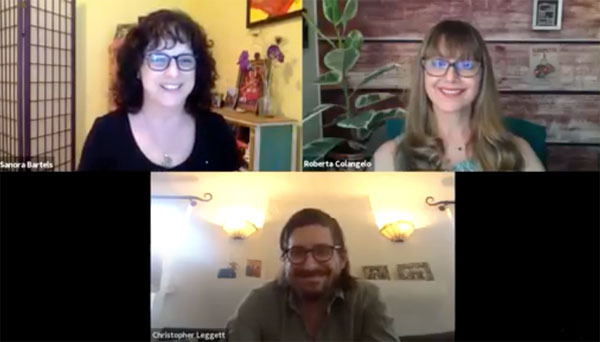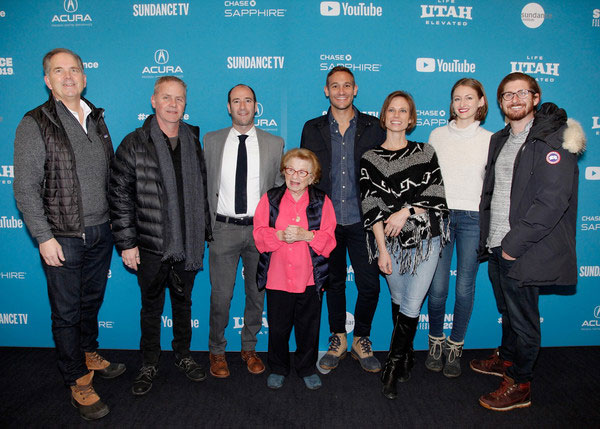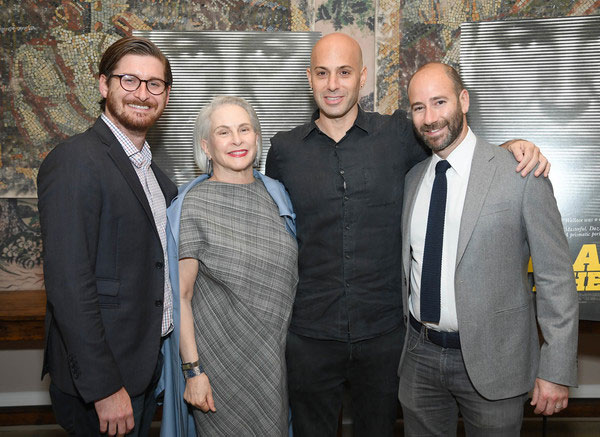This summer, New York Film Academy (NYFA) had the pleasure of hosting a live video Q&A with the talented Producer Christopher Leggett to discuss his current success with multiple films and projects in recent distribution, including Ask Dr. Ruth, Mike Wallace is Here and Honey Boy.
Producer Christopher Leggett, along with Rafael Marmor, is a controlling partner at Delirio Films, a production company with a long list of award-winning films, both documentary and narrative, and several compelling non-fiction television series on platforms like Netflix, Amazon Prime, Hulu, The History Channel and NBC, to name a few.

The Q&A was conducted by Los Angeles Chairs of the Documentary and Producing Departments, Sanora Bartels and Roberta (Robi) Colangelo, respectively. They were excited to speak with the producer, who has a very active and successful record with both documentary (where he started) and narrative filmmaking; his credits are a testament to the importance of storytelling, regardless of genre.
The discussion focused on how to make the transition from film student to filmmaking professional and the most important aspects of a successful professional career. Leggett was generous with his time and inspiring with his answers.
His advice to students in film school was to work on their tangible skill sets and noted that, for him, that includes editing: “I was a swimmer in college…so I had a little bit of the athlete mentality of just constantly doing the work was really important right out of school.” He went on to say that while you’ll have a lot of uncreative, “grunt work” to perform, “everything is a stepping-stone at that level.”

Once he mastered the technical level of the work and had something tangible on his resume, he knew he had to move on from the secure job and get himself out into the world networking in order to use his storytelling skills picked up in school. He also acknowledged the importance of internships during school, which allowed him to maintain professional relationships that he would reconnect with after getting some experience under his belt.
He also used his connections in the competitive swim world to differentiate himself as a filmmaker. In other words, he understood that he needed unique access to a world outside of filmmaking in order to tell stories that he was uniquely qualified to tell. This allowed him to pitch an idea to NBC, get hired and move up the rungs of the ladder at NBC Universal where he worked on Against the Tide and began cutting his teeth as a producer.
Of his time at NBC, Leggett reveals that “when you’re in an organization like that, there are a lot of boundaries… your job goes from here to here [hands about six inches apart]…and I think good people are constantly pushing at it to try to get more responsibility.”
This desire for more responsibility caused Leggett to develop his own project, The Short Game. He admitted that he did this while employed by NBC and because golf was not yet an Olympic sport, it did not pose a conflict of interest and he was able to see it through. He called it his “side hustle.”

His practicality and go-getter attitude spills into his philosophy around “luck,” which he believes is presented as an opportunity, but you have to say yes. “I learned early in my career not to be scared that I don’t know what I’m doing. So luck happens when you say yes.”
Talking to him about his producing philosophy led to an interesting discussion around titles versus ego versus the very real job of the producer, Leggett shared: “The Producer’s role I feel is so vast,” he explained. “You are an essential person to have birthed this project into the world.”
With this, he shared how he transitioned from documentary to narrative filmmaking, something many find difficult, but his message was all about the work and he stressed the importance of business relationships built on trust and the ability to speak the same “language.” He eventually created Delirio Films based on relationships and the desire to help filmmakers evolve.

Because Leggett is already pushing the boundaries of budgets on his documentaries, transitioning to traditional scripted narrative filmmaking came naturally. He chose to produce Honey Boy based on a past relationship with Alma Har’el and, again, he stressed the importance of trust and their mutual belief that they were “soldiers of cinema” who get things done.
When asked how he chooses the artists on his team and how he defines which relationships are important to develop, he had this to say:
Leggett also shared additional advice to grow and develop your skills and become a talented professional:
New York Film Academy would like to thank Christopher Leggett for sharing his time and expertise with NYFA students and guests on developing tangible skills and saying “yes” to projects and opportunities to be a great filmmaker and producer.
Watch the full discussion with Christopher Leggett below or click here.